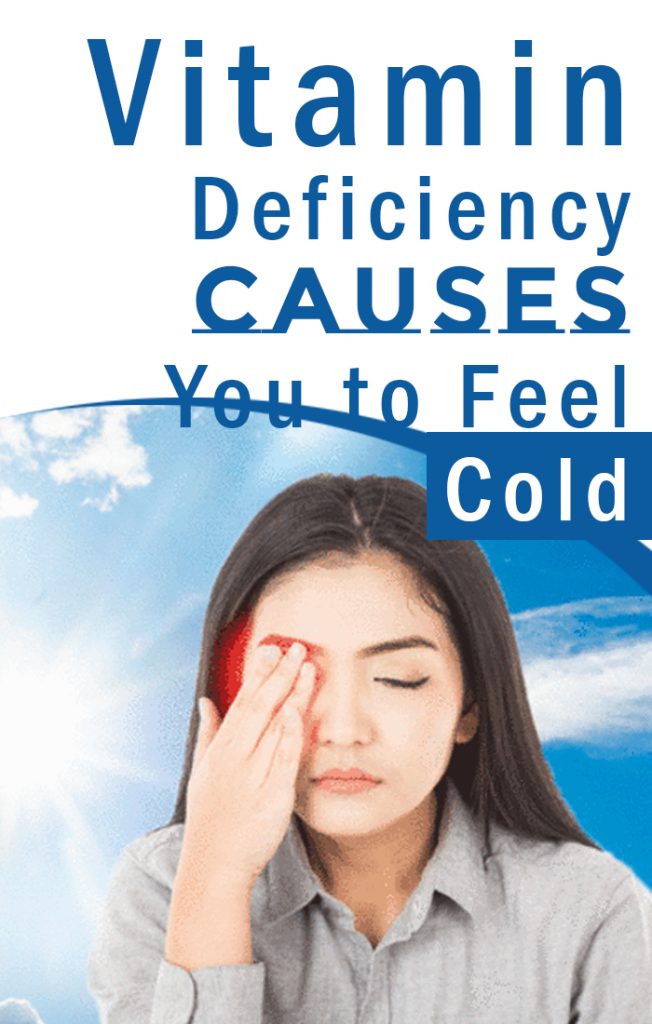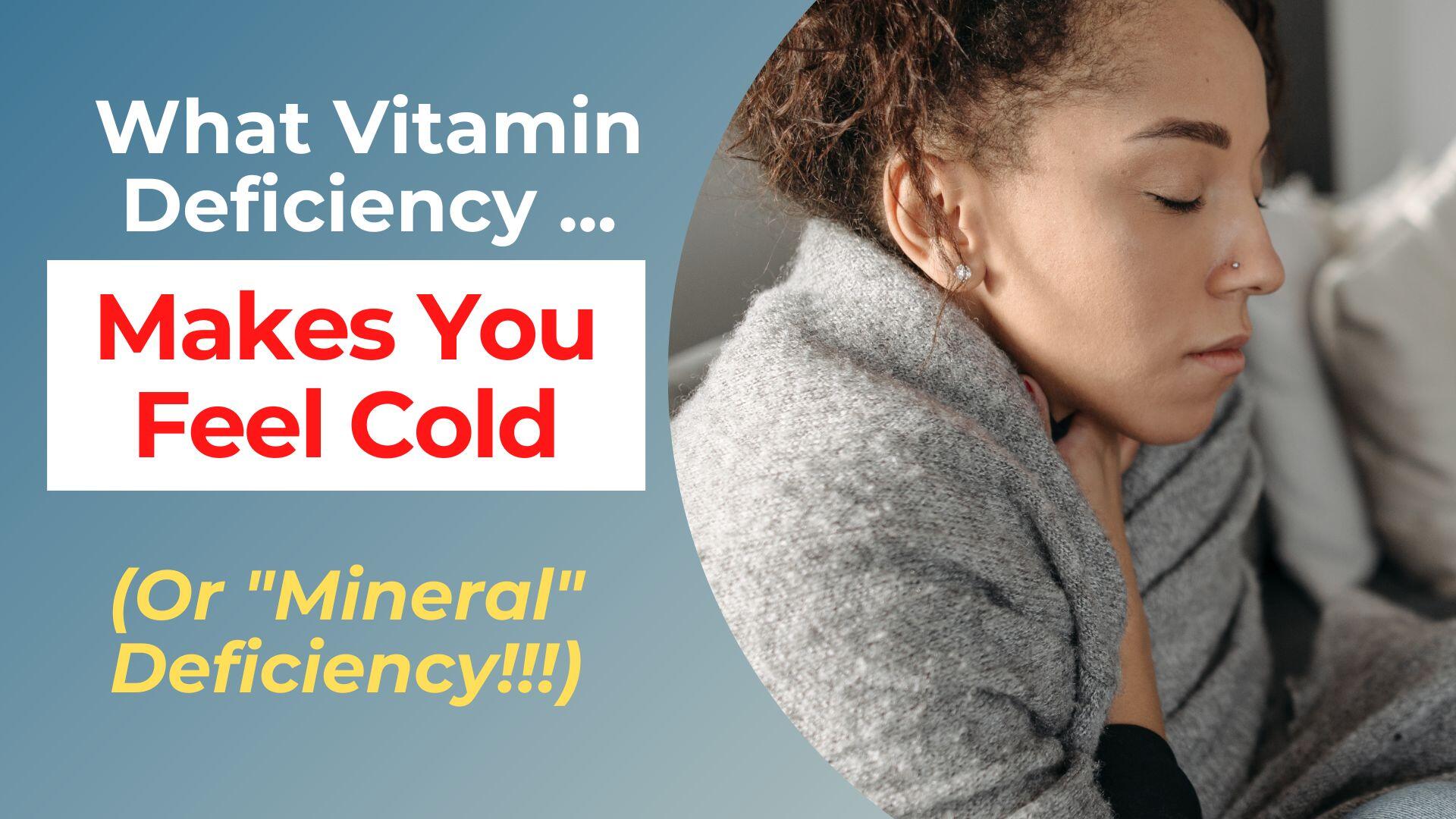Feeling cold?
There are many causes of feeling cold, such as blood vessel constriction or just plain being naked in the rain!
But purely in terms of vitamin and mineral deficiencies, there is one extremely likely culprit.
Iron deficiency!
But please note iron is a mineral and not a vitamin.
So technically we are NOT answering the question about what ‘vitamin’ causes you to feel cold. We’re talking about the mineral that’s causing you to feel cold!
However, many people don’t care much about the difference between vitamins and minerals. They simply want practical solutions so they can warm up again!
In this article we’ll discuss the vitamin (and/or mineral deficiency) most likely responsible for you feeling cold, and some things you can do about it.
Key takeaway: the #1 deficiency causing you to feel cold is iron.
A lack of iron is called anemia, which is a common condition associated with fatigue and low iron levels in blood.
Please know that the author of this post, years ago, tried to be a strict vegan. Little did I know that meat was a primary source of iron in my blood, and that I would become anemic!
Fortunately, if you are anemic or lacking iron, you can easily order one of these fantastic iron supplements for anemia to replenish your blood’s iron levels and feel warmer again.
The Vitamin Deficiency Causing You To Feel Cold
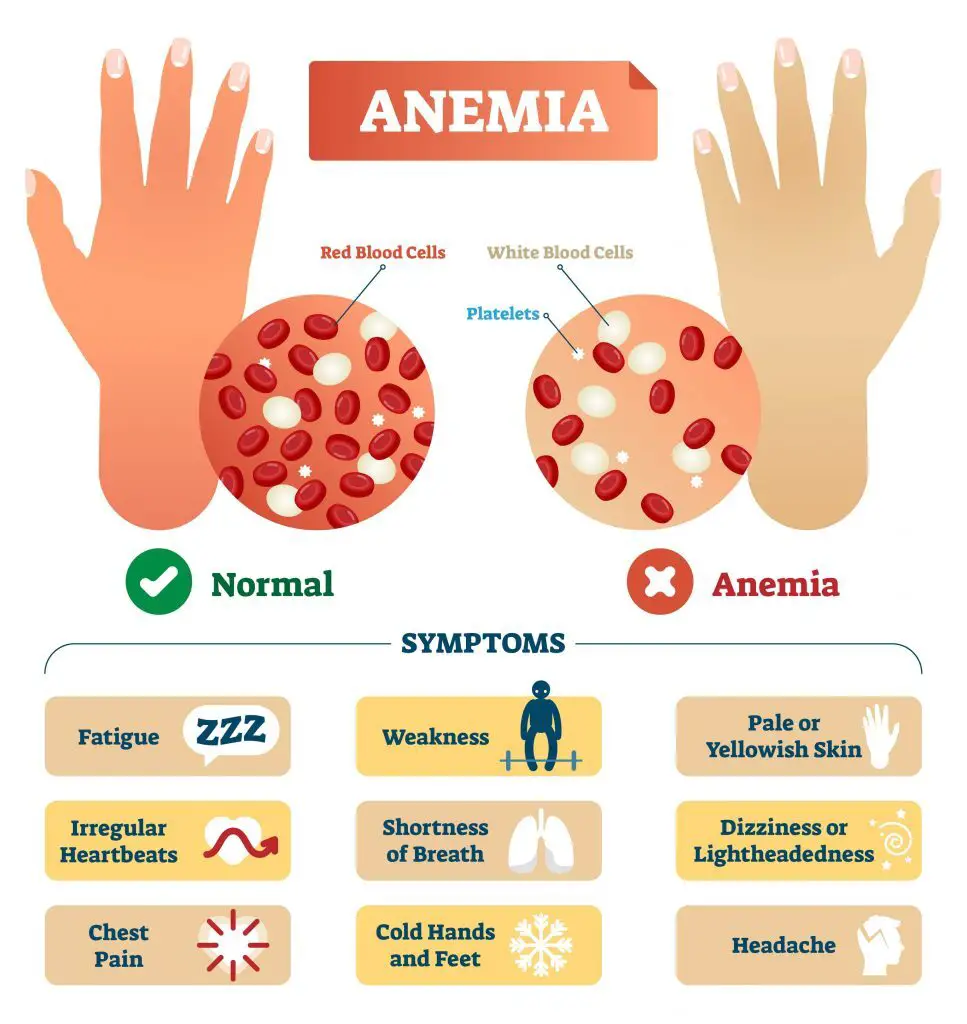
About 10 years ago I was diagnosed with a condition called “iron deficiency anemia”.
The doctor told me that ‘iron deficiency anemia’ meant that I didn’t have enough iron in my blood cells.
What’s interesting is that this condition can cause you to feel cold, so it’s important for people who are feeling perpetually cold to get tested!
Specifically the main symptom of low iron levels (or anemia) is fatigue – which makes sense because your cells need energy made via a process called ‘mitochondrial respiration’ which in turn needs iron!
(Iron’s role in the body is to help carry oxygen around, so when you have enough iron your cells are able to extract energy from food much more efficiently).
What this means for people feeling cold all of the time is that if their blood has too little iron, then they will feel cold all of the time because their cells are not getting energy efficiently.
Back in the day I remember feeling cold all the time, even in sunny weather.
It makes sense now because I was iron deficient!
The Science Behind Iron Deficiency Causing Cold Feelings
Want to hear what happened to 10 women with iron deficiency anemia when they took a bath in freezing water?
I know this sounds like a crazy story but in fact it’s a science study aimed at seeing exactly how iron deficiency relates to feeling cold.
Like any good science study there was a “control” group of 12 women who had normal levels of iron in their blood.
They also took a bath in freezing water.
However, the women who had iron deficiency anemia showed lower body temperatures and lower rates of oxygen consumption.
In the same study, the women who had anemia took iron supplements and then a few weeks later, took another cold bath.
But this time around their heat readings were at a normal level!
The scientists concluded “This experiment demonstrates a functional consequence of iron-deficiency anemia in the balance of heat production and loss”.
In other words, losing heat and feeling cold is a consequence of lacking iron!
Animals That Lack Iron Get Cold Too
Furthermore, many other studies note the link between iron and “poor temperature regulation” in both humans and animals
For example, scientists have studied animals, mostly rats, who have normal iron blood levels versus animals who lack iron.
They found similar results!
The animals who lack iron are worse at temperature regulation!
How Does Lacking Iron Cause Your Body To Feel Cold?
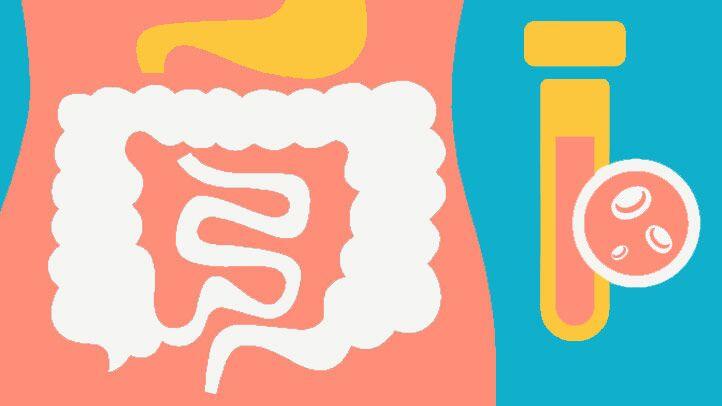
Let’s put on our science hat here.
Iron deficiency anemia decreases the amount of oxygen that is transported to the tissues.
The body senses this decrease in oxygen and tries to compensate by increasing heart rate and constricting blood vessels.
This increases the metabolic demand for oxygen, which can’t be met if there isn’t enough iron. When these cells don’t get the energy they need, they start to malfunction.
This in turn leads to less heat being produced, which is the reason that people with iron deficiency anemia feel cold all of the time!
Furthermore the studies cited above specifically note how iron deficiency causes your thyroid gland to malfunction.
Your thyroid is responsible for producing hormones that help regulate your metabolism, and if it’s not working correctly then you will have a harder time regulating your body temperature!
Decreased Blood Flow Makes Things Worse
The lack of sufficient blood flow makes your temperature regulation worse!
What happens is that your body senses there is not enough oxygen in your blood.
Then your body restricts blood vessels in your arms and legs so that the blood stays in your body’s important organs (which are located in the center of your body).
Do you see how one thing leads to another?
- You lack iron in your red blood cells and your thyroid malfunctions.
- Your blood cannot efficiently carry oxygen
- Then your body shuts down the outer blood vessels to conserve blood!
- You get other symptoms like shivering, cold hands and high blood pressure
Let’s again remember that many things can cause feelings of coldness.
In this article we are focusing primarily on mineral deficiencies.
While other deficiencies in vitamins like Vitamin B12 and in minerals like magnesium and folate can play a role in heat regulation, by far the mineral most responsible for feeling cold is still iron.
Now that we know what mineral deficiency causes low iron levels, let’s take a look at this in more depth!
What Causes Low Iron Levels?
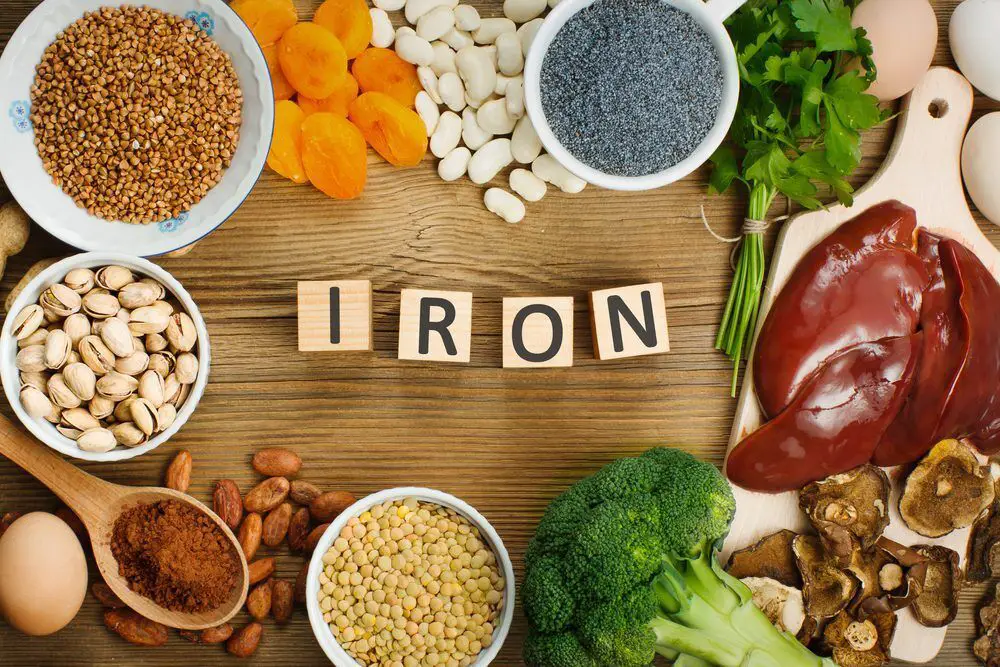
Iron deficiency anemia (or low iron levels) means that your body does not have enough iron in it – which obviously makes sense when you think about how important iron is for energy production in all of your cells.
The most common cause of low iron levels is a diet that does not contain enough meat or vegetables, and instead contains too many processed foods which are full of refined carbohydrates (i.e., they’re very ’empty’ nutritionally).
This is because when you eat a diet high in processed foods, your body actually ends up absorbing less iron from the food.
And on top of that, if you’re not eating enough vegetables then you’re probably not getting enough vitamin C either – which is another essential nutrient for helping your body absorb iron!
If you are deficient in these vitamins or others, feeling cold is just one of the symptoms you may be experiencing!
So What Can You Do To Increase Your Iron Levels?
If you think that low iron levels might be the reason why you’re always feeling cold, there are a few things that you can do to increase your iron intake:
- Eat more meat and vegetables (especially green leafy vegetables)
- Take an iron supplement (read reviews of the best iron supplements)
- Drink herbal teas like ginger, turmeric and black pepper which can help increase the absorption of iron from food
Does this all make sense?
Before you leave a comment let me address some common questions about this topic!
What does it mean if I feel cold all the time?
Remember, we said there are many reasons people feel cold.
Iron deficiency is just one of those reasons.
Here is a list of reasons people feel cold (excluding iron which we already covered!):
- Low calorie diet
- Having low cold tolerance due to living in a warm climate
- Thyroid problems
- Heart problems
- Low muscle mass
- Kidney disease
- Stroke
- Extremely low body fat
- Lung diseases like COPD or asthma
- Cancer treatments (chemotherapy)
- Aging – many older people feel cold all the time, but it is not necessarily caused by iron deficiency
- Lack of sleep
- Clothes with holes in them or not enough clothes at all!
Can a vitamin D deficiency cause you to feel cold?
Generally speaking, no.
To answer this question we turn to the largest Vitamin D study to date.
In this study a lack of Vitamin D was linked with colds (sickness) and the flu. But not to feeling cold temperature wise!
Vitamin D has many functions such as:
- Regulating calcium levels
- Supporting the immune system
- Reducing inflammation
But being deficient in Vitamin D does not mean you will feel cold all the time! If you are deficient in Vitamin D instead of shivering all the time, you’ll most like experience more sickness.
Vitamin D is often linked with the immune system, so if you don’t get much sunlight consider vitamin D supplements to fortify your immune system.
What vitamin deficiency causes you to feel cold
To wrap things up, iron is the most likely deficiency causing you to feel cold.
To treat iron deficiency anemia you’ll often want supplements and vitamins to increase iron intake. Please know there are also specially formulate iron supplements if you’re pregnant.
However, blood flow and body temperature regulation is a complex topic, so you should also know the side effects of iron supplements.
But if you’re asking about vitamin and mineral deficiencies specifically, then it’s iron and the lack of it that’s causing you to feel cold all the time.
